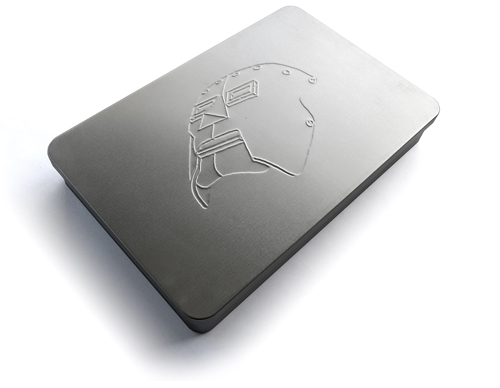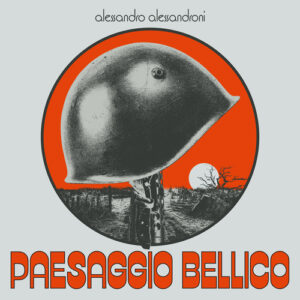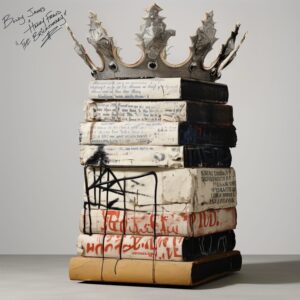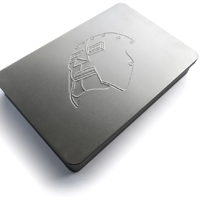

MF DOOM
When MC Zef Love X (Born Daniel Dumile) first hit the hip-hop scene as a member of the short-lived trio KMD, nobody could have guessed the rapper he eventually would become. Alongside his brother DJ Subroc and Onyx The Birthstone Kid, (Replacing original MC Rodan) the trio released the minor success album Mr. Hood in 1991, which featured heavy MTV airplay for their singles "Peachfuzz" and "Who Me?"

In a matter of time this success collapsed in on KMD, as Subroc was struck and killed by a car in 1993, just on the verge of their second album Black Bastards' release. The group was unceremoniously dropped by their label, Elektra Records, the same week, and the album was shelved due to controversial content and cover art. (Though would later become legendary in underground circles through extensive bootlegging, eventually being reissued in 2008.) Broken from the death of his brother and the music industry's betrayal towards him, Dumile would go into hiding to lick his wounds, and plan revenge.

Nearly five years later, Dumile appeared at open-mic events throughout New York, free-styling in disguise, first with a stocking over his head, and later wearing a metallic mask stylized after the Marvel Comics character Dr. Doom. Zef Love X had ceased to exist, and the hip-hop supervillain MF Doom had taken his place. Partnering up with famed New York label Fondle 'Em Records, Doom would release several singles before finally making his full-length debut in 1999 with Operation: Doomsday.
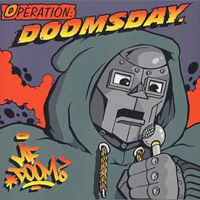
Operation: Doomsday has since gone down in the annals of hip-hop history as an oddity, and an essential underground rap album. Doomsday introduced the world to Doom's style of stream-of-consciousness rhyming, abstract wordplay, and refined delivery, coupled with bizarre and off-kilter production and beats, (Courtesy of Doom himself) that were unlike anything hip-hop had ever heard before. Through heavy bootlegging, Doomsday would over time emerge as a true classic. Since its release, Doom would go on to massive critical acclaim and success, working alongside hip-hop visionaries as Madlib and Danger Mouse, (Under the banners of Madvillain and DANGERDOOM, respectively) and celebrated contemporaries like Ghostface Killah, Masta Ace, Talib Kweli, and many more.
Doom's own imprint, Metal Face Records has reissued Operation: Doomsday for a new audience in recent years in various formats, though never on cassette tape. Nearly 15 years after the album's original release, Metal Face has fixed that in a truly deluxe fashion. The Operation: Doomsday Cassette Tin is presented in a metal box set containing two cassette tapes. The first tape features the original album in its entirety with the original cover art by Blake Lethem, while the second tape features instrumentals, b-sides, and alternate takes with cover art by Jason Jagel from its 2011 reissue.
PRESS FOR OPERATION: DOOMSDAY
"…The album goes a long way toward demonstrating Doom's incalculable influence on some of the leading lights of current underground hip-hop: Lil B has dedicated an entire album to Doom, the lurching production style of Odd Future owes him a heavy debt (most obviously shown in "Odd Toddlers" flipping the same sample as 2004's "One Beer"), and K.M.D.'s referential raps and playful yet incisive deconstructions of racial politics are a clear influence on Das Racist…"
"Operation: Doomsday affords newcomers an opportunity to experience in the best possible form where it all began, the weird little album that let a semi-obscure rapper find himself by losing his old identity and slipping on the mask that would make him a geek god."
"…The out-of-left-field edge of Doom's production — which features '80s soul and smooth jazz mixed with classic drum breaks — is indeed abstract at times, but his off-kilter rhymes are palatable and absent any pretentiousness. In fact, the album arguably contains some of the freshest rhymes one might have heard around the time of its release…"
"…As with most of DOOM's output, you can't comprehend Operation: Doomsday immediately. It's like being close to an extremely large object: At first, you encounter its texture intimately, in the unimaginable turns of DOOM's poetry "that make a A-rab thief clap." Then the complexities of meaning and the album's emotive capabilities increase with listening, as you back away and hear the record as a whole…Operation: Doomsday is in many ways an album about having good taste (better taste than the industry that shunned him) and the layers of music that stand for an approximation of his taste."
